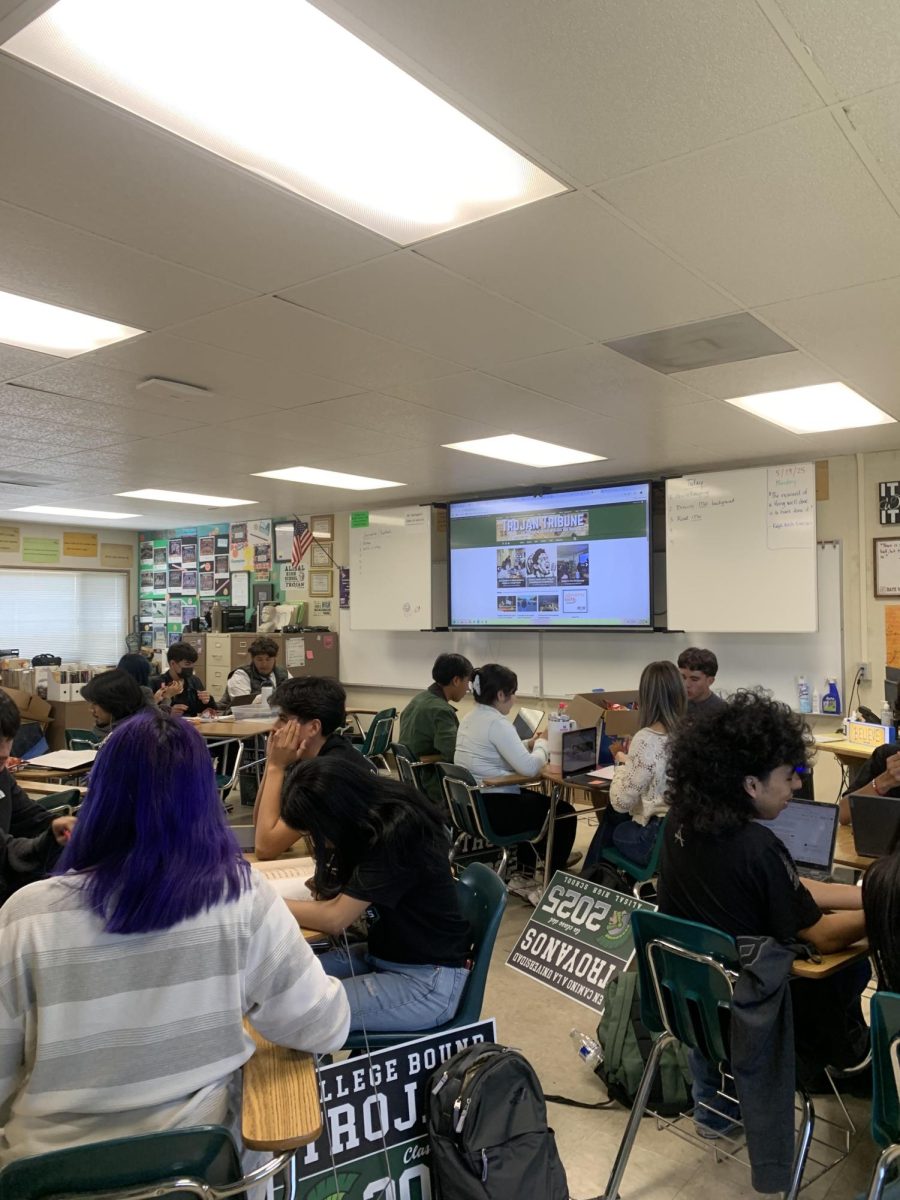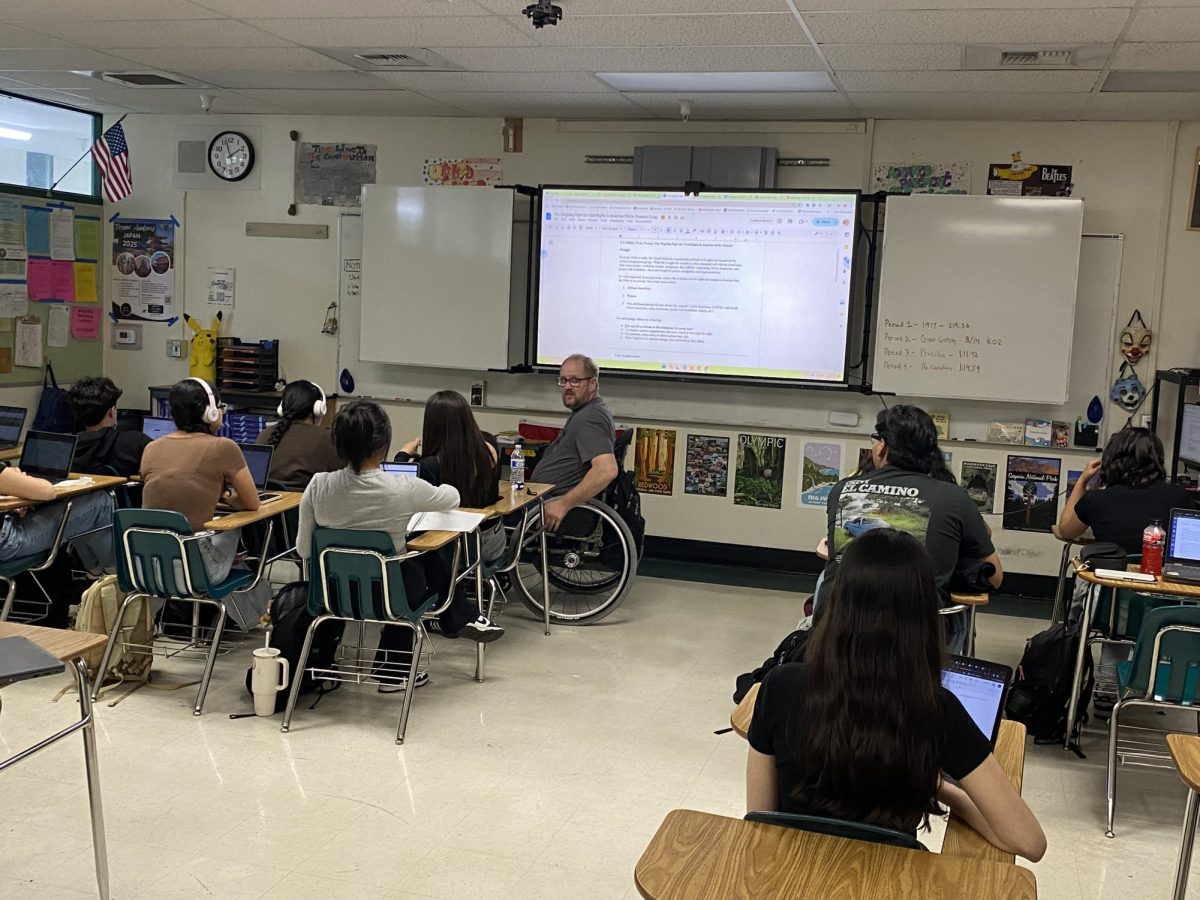Two hundred and thirty-six years. That’s how long our Constitution has been in effect, keeping state and church separate under the First Amendment. As of 2024, lawmakers in 29 states proposed 91 Bills regarding religion in public schools, showing an upward trend of legislative activity since 2023, when 49 similar bills were tracked. This shows how our government is slowly blurring the lines between church and state.
Donald J Trump is approximately three months into his presidency, and like his last presidential term, his stances have been nothing short of controversial. In particular, his cabinet’s current stance on education and religion.
The Educational Department is congressionally mandated to guarantee the best education for students. This includes allowing students with disabilities to thrive among their peers, ensuring education is equally upheld for students of all races, protecting freedom of religion, as well as sex based and LGBTQ+ discrimination. Trump refuses to accept these mandates and is attempting to dismantle the Department of Education by removing these safeguards that keep marginalized students safe.
Trump has spoken out about wanting to “champion the First Amendment right” to pray and read the Bible at schools, which is already permitted as long as it’s not government-funded. Trump and his cabinet of Republicans have also supported school choice as an option for parents to be able to use taxpayer-funded money to send their children to religious schools, which is against the Constitution and could potentially blur the line between religion and state even more.
Not only that, but there has also been legislation in Louisiana about displaying the Ten Commandments, and Oklahoma has begun mandating that public schools teach the Bible.
House Bill 71 was signed into Louisiana law by Governor Jeff Landry in June 2024. The bill directed the display of the Ten Commandments in classrooms. However, six months later, in November 2024, the bill was overturned by the Federal Court, prohibiting the display of the Ten Commandments. This shows that a religious bill such as H.B. 71, continuing into law and being enforced, would violate the Constitution through religious indoctrination of young children, as it was focused on a single religion, Christianity.
Having laws promoting one religion against other religions is disgraceful, considering our country was built upon a Constitution where church and state are separate, as well as allow for freedom of religion, so it would be unconstitutional for the government to promote one religion over all others.
Oklahoma State’s superintendent Ryan Walter, a Republican, ordered schools to teach from the Bible in grades 5-12 by incorporating it into school curriculum lessons. The AP News: Oklahoma state superintendent orders schools to teach the bible in grades 5 through 12 by Sean Murphy wrote on what superintendent Ryan Walter had to say about his authority to order schools to teach from the bible “The Bible is an indispensable historical and cultural touchstone.” Walters also states, “Without basic knowledge of it, Oklahoma students are unable to properly contextualize the foundation of our nation.”
The Texas State Board of Education prepared to vote in 2024 on whether to allow public school districts to select their school curriculum to feature Bible verses. On November 22, 2024, they gave the final approval for Bluebonnet Learning, the elementary school curriculum. The program is described by the Texas Education Agency to contain “rigorous, relevant, and grade level appropriate” material. Others are not on the same page about the material. The program has been heavily criticized by religious studies scholars, faith leaders, and parents, for the lack of exclusion of faith, and over emphasis on Christianity. The curriculum has also raised questions regarding the influence of state education officials over students learning religion, this makes many question the separation of church and state.
With Trump in office, the rise of religion-based bills will continue to skyrocket and blur the line between church and state. This can be seen through the actions of White House Press Secretary Karoline Leavitt, who frequently wears a cross necklace during press conferences. While displaying her faith isn’t controversial in itself, it is obvious that she is intentionally bringing attention to her religion, which is Christianity. Even the Economic Times wrote about her “iconic” necklace and how it serves as a clear statement of her religious beliefs. By boasting about her religion through wearing a cross necklace to almost every press conference, some individuals may feel uneasy and as if her beliefs are being forced upon them. Individuals have been voicing their opinions about the situation, some mentioned things such as the more someone makes a huge point of displaying their faith, the more they are trying to convince others.
Religion in public schools is a controversial subject and has been debated for years. Having religious texts and scriptures centered in schools could affect the societal attitudes towards certain religions, and traditional attitudes about gender roles.
In the 19th century, churches used schools to indoctrinate children to become good Christians. Our government should never have enough power to incentivize these ideals over our children and potentially indoctrinate them to follow a specific religion, when our government is supposed to protect our freedom of religion rather than force one upon us.






















